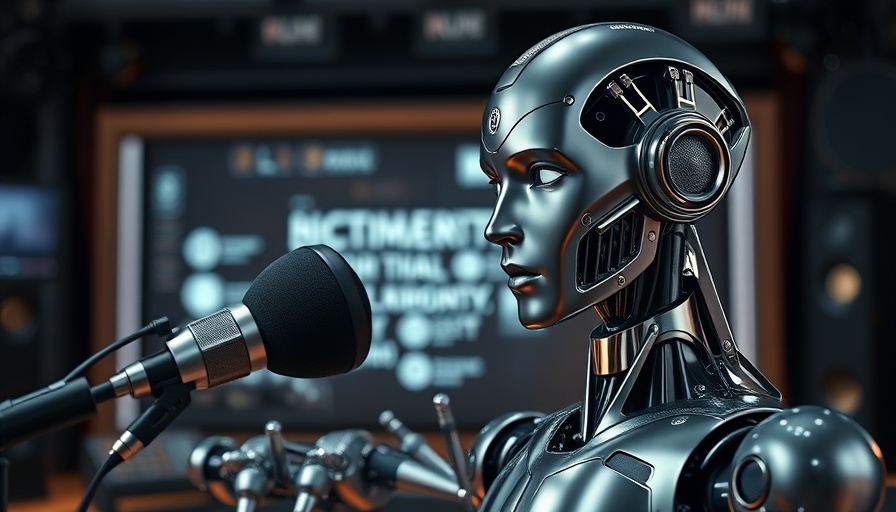
Why Whoopi Goldberg Is Raising Red Flags About AI Actors
In a recent episode of The View, Whoopi Goldberg took a firm stand against the rise of AI-generated performers, particularly calling out Tilly Norwood, the first AI actress touted by a new talent studio. Goldberg’s concerns aren’t just your standard objections; her insights reflect a deeper apprehension regarding the implications of artificial intelligence encroaching on creative fields. As she pointed out, these AI constructs borrow from countless actors, amalgamating their mannerisms and tones to create something entirely new yet devoid of genuine human nuance.
The Ethical Dilemma of AI in Entertainment
The growing fascination with AI-generated entertainers has sparked serious debates across the entertainment industry, illuminating critical ethical dilemmas. After all, if AI actors are trained using the likenesses of existing actors, are they not also infringing on the rights and creative contributions of those performers? The issue isn’t limited to Hollywood either; a similar instance unfolded in India when singer Asha Bhosle took legal action to protect her identity from being exploited by AI platforms. These stories underscore a broader danger: as AI technology becomes more sophisticated, the boundaries of creative ownership are increasingly blurred.
The Human Touch: What AI Cannot Replicate
Goldberg highlights a glaring issue—while AI may appear slick and sophisticated, it fundamentally lacks the human experience. Authentic art is born from lived experiences, emotional risks, and flaws that connect with the audience on a visceral level. Tilly Norwood may be programmed to mimic aspects of performances, but as Goldberg states, "What actors bring to the table—their human intricacies and the emotional weight they carry—cannot be replicated by an algorithm." This sparks the question: as consumers of art, are we willing to settle for soulless performances?
The Reaction of Industry Professionals
Goldberg’s remarks resonated within the acting community, reflecting a widespread anxiety about job security in a sector still recovering from the pandemic and strikes over fair pay. Many actors fear AI may usurp their roles in the future, reinforcing an already precarious job market. The response to Tilly Norwood has been an emotional one, with performers contemplating the possibility of sharing the stage—or the screen—with a creation that hasn’t endured the challenges of a traditional acting career.
Time for Industry Accountability
The essence of Goldberg’s critique isn’t limited to individual performances; it touches upon a larger societal issue regarding our reliance on technology. “What happens when people are so disconnected that their only connection is to their devices?” she cautioned. This notion resonates deeply in an era increasingly defined by digital interactions. The entertainment industry, which has the power to influence culture, must address the ethical implications of AI empathetically rather than merely adopting it for profit.
What Lies Ahead for AI in Entertainment?
As we move forward, the relationship between artistic integrity and AI technology must be carefully navigated. The industry needs to set clear regulations that protect creative voices while also embracing technological advancements. If studios continue to push for AI-generated content, are they essentially undermining the value of genuine artistry? Perhaps adopting AI tools in marketing or production could enhance human creativity rather than replace it, but this requires mindfulness about the ethical implications involved.
The time for debate may soon be over as AI technology evolves. Artists, industry professionals, and audiences must engage in critical conversations regarding the future of art in a tech-driven world, ensuring that we preserve the humanity that makes storytelling truly impactful.
Now more than ever, it's crucial to advocate for the rights of human creators while enjoying the innovative possibilities that AI offers. It’s not just about whether AI can mimic talent; it’s about maintaining authenticity in an increasingly synthetic world.
 Add Row
Add Row  Add
Add 




Write A Comment